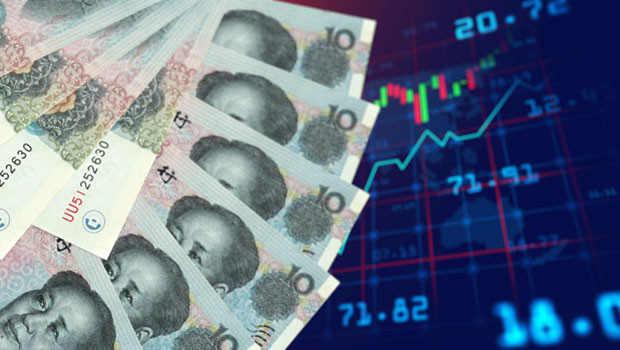Asia report: Markets mixed as China factory activity contracts

Asia-Pacific markets traded mixed on Monday as investors assessed China's latest economic data, which showed an unexpected contraction in factory activity for January while industrial profits posted a year-on-year increase in December.
However, profits declined for a third consecutive year on an annual basis, adding to concerns about the broader economic outlook.
“There was a decline in Nasdaq futures and a decrease in technology stocks in Japan, as investor confidence wavered following the introduction of a cost-effective Chinese artificial intelligence model, DeepSeek,” said TickMill market strategy partner Patrick Munnelly.
“This development sparked concerns about the profitability of AI and the industry's heavy reliance on advanced chips.
“In Tokyo, shares of Advantest, a Nvidia supplier, took a drastic tumble of 8.5%.”
Munnelly noted that the emergence of DeepSeek - a startup offering a free assistant that uses affordable chips and requires less data - had injected a fresh element into the market.
“This new development challenges the prevailing notion that AI advancements would drive demand across the supply chain, impacting chip manufacturers and data centres.
“The disruption caused by DeepSeek's innovative approach has prompted a revaluation of expectations surrounding the future of AI and its implications for the technology sector.
“The small startup in Hangzhou behind DeeepSeek remains shrouded in mystery, yet their assistant managed to surpass the competition, ChatGPT, and claim the top spot as the highest-rated free app on Apple's App Store in the United States on Monday.”
Markets mixed, Australia and Korea take the day off
In Japan, the Nikkei 225 fell 0.92% to close at 39,565.80, weighed down by significant losses in Furukawa Electric, Fujikura, and Advantest Corporation, which declined 11.27%, 10.66%, and 8.61%, respectively.
In contrast, the broader Topix index rose 0.26% to 2,758.07, reflecting resilience in other sectors.
China's Shanghai Composite edged down 0.06% to 3,250.60, with sharp declines in Beijing Vantone Real Estate, GEN S Power Group, and Raisecom Technology, each falling by around 10%.
The Shenzhen Component dropped 1.33% to 10,156.07, reflecting broader investor caution despite the recent industrial profits data.
Hong Kong's Hang Seng Index rose 0.66% to 20,197.77, supported by gains in Hang Lung, Baidu, and Kuaishou Technology, which advanced 4.37%, 3.92%, and 3.82%, respectively.
Markets in South Korea and Australia were closed due to public holidays.
South Korea observed a temporary holiday ahead of the Lunar New Year to stimulate domestic consumption and tourism, while Australia remained shut for the Australia Day holiday.
In New Zealand, the S&P/NZX 50 declined 0.19% to 12,999.72, with notable losses in Eroad, Genesis Energy, and Auckland International Airport, which fell 2.78%, 2.18%, and 2.16%, respectively.
In currency markets, the dollar was last down 0.96% on the yen, trading at JPY 154.55, while it strengthened 0.33% against the Aussie to AUD 1.5890, and advanced 0.28% on the Kiwi, changing hands at NZD 1,7566.
Oil prices were relatively stable, with Brent crude futures last up 0.04% on ICE to $78.53 per barrel, while the NYMEX quote for West Texas Intermediate dipped 0.03% to $74.64.
China factory activity contracts, industrial profits rise in December
In economic news, China’s factory activity unexpectedly contracted in January, reversing three months of expansion as seasonal factors ahead of the Lunar New Year weighed on production.
The official purchasing managers' index (PMI) fell to 49.1, signaling a return to contractionary territory, according to data released by the National Bureau of Statistics.
In the services and construction sectors, growth also slowed, with the non-manufacturing PMI declining to 50.2 from December’s reading of 52.2.
Despite the slowdown in factory activity, China’s industrial sector showed signs of improvement, with profits rising 11% in December from a year earlier.
That marked a continued recovery from September’s sharp 27% year-on-year decline, the steepest drop since the onset of the Covid-19 pandemic in early 2020.
In an effort to stabilise its struggling stock market, Chinese authorities introduced new measures to boost index investment products on Monday.
The China Securities Regulatory Commission announced initiatives aimed at fostering the growth of equity and bond exchange-traded funds.
The measures would build on last week’s efforts, which included encouraging large state-owned financial institutions to increase their stock purchases.
Reporting by Josh White for Sharecast.com.